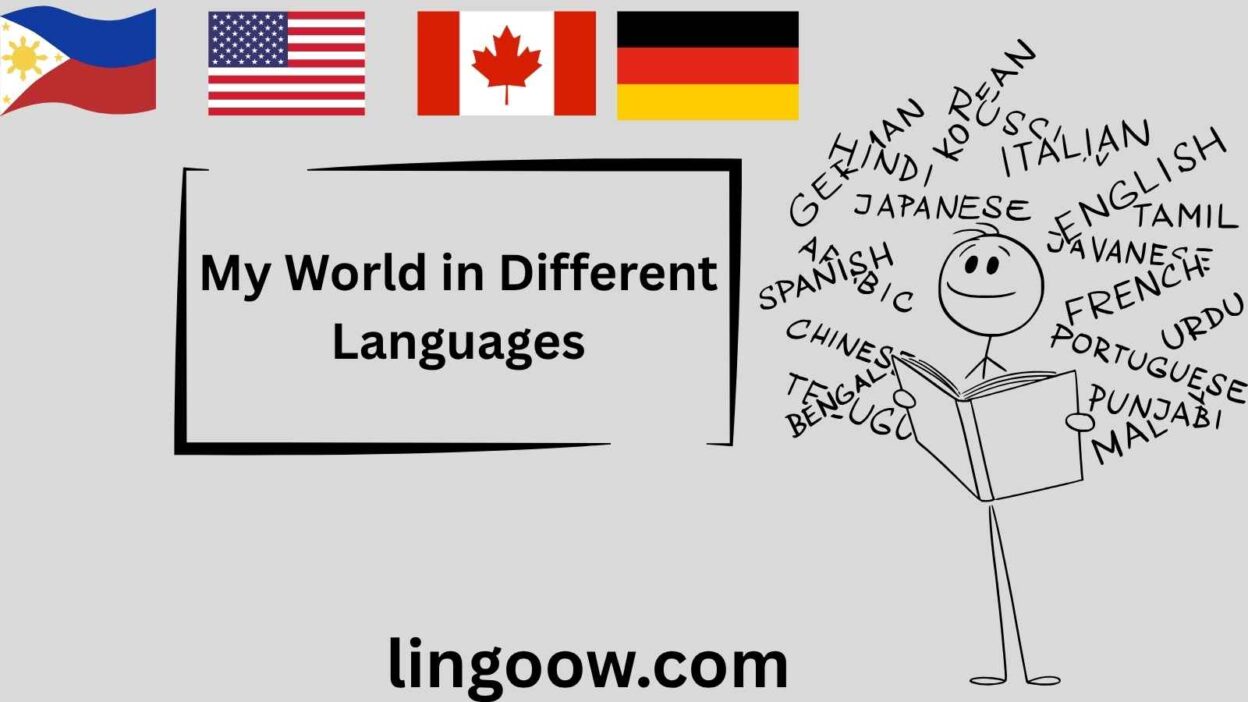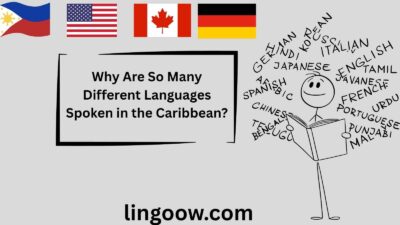The word “world” carries a weight that transcends borders, a single syllable that holds within it the dreams, struggles, and stories of billions. I remember standing in a bustling market in Marrakech,
the air thick with the scent of spices and the hum of countless voices, when a vendor smiled and said, “This is my world.” His gesture swept across his modest stall, yet it felt like he was offering me the universe.
That moment made me wonder: how do people across the globe name this shared space we call home? The word “world” is more than geography—it’s a vessel for identity, culture, and belonging. In every language, it tells a story of how we see our place in the cosmos, uniting us in a universal longing to understand our existence.
Reference Table: “World” in Different Languages
| Language | Word for “World” | Cultural/Linguistic Insight |
| Spanish | Mundo | Derived from Latin “mundus,” meaning both world and universe, reflecting a cosmic connection. |
| French | Monde | Shares Latin roots with “mundo,” often used poetically to evoke global unity or beauty. |
| German | Welt | A concise term, tied to Germanic roots, symbolizing both the planet and human experience. |
| Italian | Mondo | Similar to French and Spanish, with a warm, inclusive tone in everyday use. |
| Mandarin | Shìjiè | Combines “shì” (era) and “jiè” (boundary), suggesting a world defined by time and space. |
| Hindi | Duniya | From Persian/Arabic roots, often used to describe the material or transient world. |
| Japanese | Sekai | Conveys a sense of global interconnectedness, used in contexts from anime to philosophy. |
| Korean | Sesang | Implies the world as a lived experience, often tied to human society and emotions. |
| Arabic | ‘Ālam | Rooted in knowledge and perception, it reflects the world as something to be understood. |
| Swahili | Dunia | Borrowed from Arabic, used widely in East Africa to denote both earth and human affairs. |
| Zulu | Umhlaba | Literally “earth,” it emphasizes the physical world and land as central to identity. |
| Yoruba | Aiyé | Refers to the living world, often with spiritual connotations tied to community and life. |
| Maori | Ao | A poetic term for the world or universe, deeply tied to nature and cosmology in Maori culture. |
| Hawaiian | Honua | Refers to the earth or world as a foundation, emphasizing connection to land and sea. |
| Cherokee | Gvgeyuhi | A term that conveys love for the world, rooted in the Cherokee reverence for nature. |
European Languages
In Europe, the word for “world” often traces back to Latin mundus, meaning both the physical earth and a harmonious cosmos. In Spanish, mundo is used in phrases like “todo el mundo” (everyone), suggesting a collective embrace of humanity. In French, monde carries a poetic flair, as in “le beau monde” (high society), blending the physical and social realms. Italian mondo shares this warmth, often used in expressions like “giro del mondo” (world tour), evoking adventure and discovery. In German, Welt is stark yet profound, seen in terms like Weltanschauung (worldview), which reflects the German philosophical tradition of grappling with existence. These languages reveal a European perspective where the world is both a tangible place and a canvas for human aspiration, shaped by centuries of exploration and intellectual inquiry.
Asian Languages
Asia’s linguistic diversity paints a vivid picture of the word “world.” In Mandarin, shìjiè (世界) combines notions of time and boundaries, reflecting a worldview where the world is a dynamic interplay of eras and spaces, as seen in China’s emphasis on historical continuity. Hindi’s duniya, used across India and in 20+ countries with Indian diaspora, carries a Persian-Arabic flavor, often implying the transient, material world in contrast to spiritual realms, as in Bollywood songs lamenting duniya ki maya (the illusion of the world). Japanese sekai is versatile, appearing in pop culture (sekaiichi, meaning “world’s best”) and philosophical contexts, emphasizing global interconnectedness. In Korean, sesang evokes the lived human experience, often with emotional weight, as in sesang sarang (love of the world). Arabic’s ‘ālam, used across 22 Arab countries, ties the world to knowledge, suggesting a universe to be explored through understanding. These variations highlight Asia’s blend of pragmatism, spirituality, and interconnectedness.
African Languages
Africa’s linguistic tapestry reflects deep cultural ties to the concept of “world.” In Swahili, spoken in over 20 East African countries, dunia (from Arabic) is used in everyday phrases like dunia ni duara (the world is round), emphasizing cycles and community. Zulu’s umhlaba, prevalent in South Africa, focuses on the earth as a physical and cultural anchor, central to identity in a land-conscious society. Yoruba’s aiyé, spoken in Nigeria and beyond, carries spiritual weight, often tied to the living world and communal harmony, as in prayers for aiyé rere (a good world). Other languages, like Amharic (alam in Ethiopia) or Hausa (duniya in northern Nigeria), echo similar themes of earth and society, shaped by Africa’s history of trade, migration, and spiritual traditions. These words reflect a worldview where the land, community, and spirit are inseparable.
Indigenous & Island Languages
Indigenous and island cultures offer unique perspectives on “world.” In Maori, ao (used in New Zealand) evokes the universe as a living entity, deeply tied to nature and ancestors, as in te ao Māori (the Maori world). Hawaiian honua emphasizes the earth as a foundation, seen in cultural practices like hula that honor the land, spoken across Pacific communities. Cherokee’s gvgeyuhi, used in Native American communities, reflects a love for the world as a sacred space, tied to environmental stewardship. Samoan laloifale, spoken in Samoa and diaspora, connects the world to the physical earth beneath the home, emphasizing family and place. These terms, used in over 20 indigenous and island contexts, highlight a worldview where the world is not just a place but a living, relational entity, rooted in respect for nature and heritage.
Cultural Insights
The word “world” has evolved across civilizations, often reflecting humanity’s attempt to define its place in the cosmos. In ancient Latin, mundus linked the world to order and beauty, influencing Romance languages. In Sanskrit, loka (source of Hindi duniya) denoted realms of existence, blending the physical and metaphysical, a concept echoed in Hindu and Buddhist cosmology. In Arabic, ‘ālam ties to knowledge, reflecting Islamic traditions of scholarship and exploration. Historically, the word has been shaped by trade, conquest, and religion—Swahili’s dunia spread through Arab trade routes, while European terms traveled with colonial empires. Across cultures, the word carries emotional weight, symbolizing home, hope, or the vast unknown, uniting humanity in its shared quest for meaning.
Proverbs and Sayings
- Spanish: “El mundo es un pañuelo” (The world is a handkerchief) – Reflects the smallness of the world, where connections are inevitable.
- Mandarin: “天下为公” (Tiānxià wéi gōng) – “The world belongs to all,” emphasizing shared humanity and justice.
- Swahili: “Dunia haina huruma” (The world has no mercy) – A reminder of life’s challenges, common in East African storytelling.
- Maori: “He ao, he ao” (A world, a world) – A poetic chant celebrating the interconnectedness of all things.
- Hindi: “Duniya ek rangmanch hai” (The world is a stage) – Echoes the transient, performative nature of life, akin to Shakespeare.
These sayings reveal how the world is seen as a shared space, a stage for human drama, or a teacher of resilience across cultures.
FAQs
Why does the word for “world” sound similar in many languages?
Many languages share roots due to historical trade, conquest, or linguistic borrowing. For example, Arabic ‘ālam influenced Swahili dunia and Hindi duniya through trade and cultural exchange.
What’s the oldest known usage of the word?
The concept of “world” appears in ancient texts like Sanskrit loka (c. 1500 BCE) and Latin mundus (c. 500 BCE), both tying the world to cosmic order and human experience.
How do cultural differences shape the word’s expression?
In Western languages, “world” often emphasizes geography or society, while in African and indigenous languages, it’s tied to land and spirituality. Asian languages may blend temporal and spatial ideas, reflecting philosophical depth.
Conclusion
The word “world” is a mirror reflecting our shared humanity, yet it sparkles with the unique hues of each culture. From the poetic monde of France to the earthy umhlaba of Zulu, it captures our longing to belong, to explore, and to understand. It’s a reminder that, despite our differences, we all gaze at the same stars, walk the same earth, and dream under the same sky. What’s the word for “world” in your language, and what does it mean to you? Share your story in the comments—I’d love to hear how your world speaks to you.

I’m Aurora Hale, a passionate and professional author dedicated to exploring the beauty and power of language. Through my work, I aim to inspire readers, spark curiosity, and make learning both engaging and meaningful. As the founder of Lingoow.com, I’ve created a platform where language enthusiasts can discover innovative ways to communicate, learn, and connect with the world. Every story I write and every lesson I share reflects my commitment to creativity, clarity, and the transformative magic of words. Join me on this journey at Lingoow.com to unlock your linguistic potential and embrace the joy of language.




